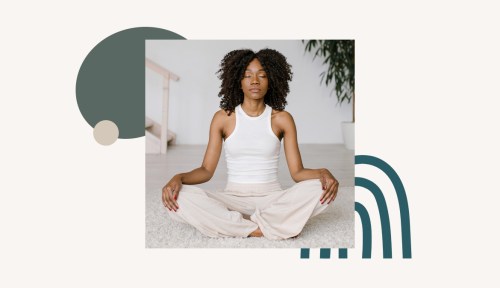If you haven’t started a meditation practice, I’m willing to bet one of the reasons is because you don’t think you’ll be able to sit and be still for a long period of time. Trust me, I get it. Initially, I felt the same way. Ultimately, I was sold on adding it to my well-being routine when I learned you can increase the gray matter volume of your brain, which is associated with self-awareness, emotion, cognition, and aging.
Experts in This Article
Valerie Oula is the director of vibrational healing at The Well and author of “A Little Bit of Reiki: An Introduction to Energy Medicine.”
According to Valerie Oula, director of vibrational energy healing at The Well and author of A Little Bit of Reiki: An Introduction to Energy Medicine, you can reap these brain benefits and other mindfulness benefits (like decreased stress, greater emotional regulation, and improved sleep) with a three-minute meditation.
Why a three-minute meditation is optimal
“I really think it’s important to start with a bite-size approach,” says Oula. “In that three minutes, you actually allow your system to reset.” By beginning with three minutes of mediation a day, she says, your body begins to learn that this is the time where you just sit. “But you’re not not doing anything,” says Oula. “You’re just sitting and you’re being mindful. And it’s that mindfulness that really begins to open up some space for awareness.”
You can also draw your energy back in and come back into your body in this three-minute period, says Oula. “I think when we allow ourselves that three minutes to just sit, to get still and just notice without judgment, and just notice sensations in our body, notice our breath, it gets you out of this nonstop, looping ‘Oh my God, stress, overwhelm,’ all of the things.”
All the emotions and sensations you may be feeling won’t magically disappear, but meditation does allow your mindset to shift. And as you become more consistent with three minutes of meditation, Oula says that you might find yourself naturally sitting for longer.
How to start meditating
If you’re feeling more confident about beginning to meditate, you may be wondering exactly how to do it. “One of the ways that I love to share is for people who are super new and just beginning is to actually count,” says Oula.
Start by sitting comfortably in an upright position. (“Your physiology contributes to how you feel,” she explains.) You’ll also want to sit in a way where you can tune into your core and have your feet grounded, which can be done on a chair or seated on a cushion.
From here, close your eyes and do a simple breath count. For example, say “one” in your head, followed by a slow inhale and a slow exhale (you can also say this in your head to help you control your breathing). And then continue at that pace until your meditation is complete. “The key is to really emphasize the slow breath,” explains Oula.
If you need some extra guidance, you can always check out our guide to free meditation apps that are great for beginners.
Benefits of a three-minute meditation
In addition to taking the time to slow down and be present, you’re also allowing your body and brain to integrate and process the information you’re constantly taking in, says Oula. You’re also strengthening your parasympathetic nervous system, one of three divisions of your autonomic nervous system that regulates involuntary physiological processes, which is often referred to as “rest and digest.”
Oula says the goal is to spend more time strengthening the restful parasympathetic nervous system and calming the sympathetic nervous system—aka fight-or-flight—which is responsible for making us feel a heightened state of alertness. “We want to cultivate the resilience of our nervous system [by] moving between sympathetic and parasympathetic.”
Meditation helps us to achieve balance because it “gives you the space to step back, versus being fully in the thing and being triggered by whatever you’re being triggered by,” she explains. It also allows us to strengthen areas in our brain that help us pay attention in different ways and to open up more awareness, in addition to giving our brain the space to clean itself out with synaptic pruning, the removal of connections in the brain that are no longer needed.
At the end of the day, your practice is yours, and you’ve got to do what is going to help you feel the calmest and present. And one of the best ways to do so, in Oula’s opinion, is to begin with an easy three-minute reset. And don’t forget, she says: “A little bit is better than nothing at all.”
Oh hi! You look like someone who loves free workouts, discounts for cutting-edge wellness brands, and exclusive Well+Good content. Sign up for Well+, our online community of wellness insiders, and unlock your rewards instantly.
Sign Up for Our Daily Newsletter
Get all the latest in wellness, trends, food, fitness, beauty, and more delivered right to your inbox.
Got it, you've been added to our email list.










